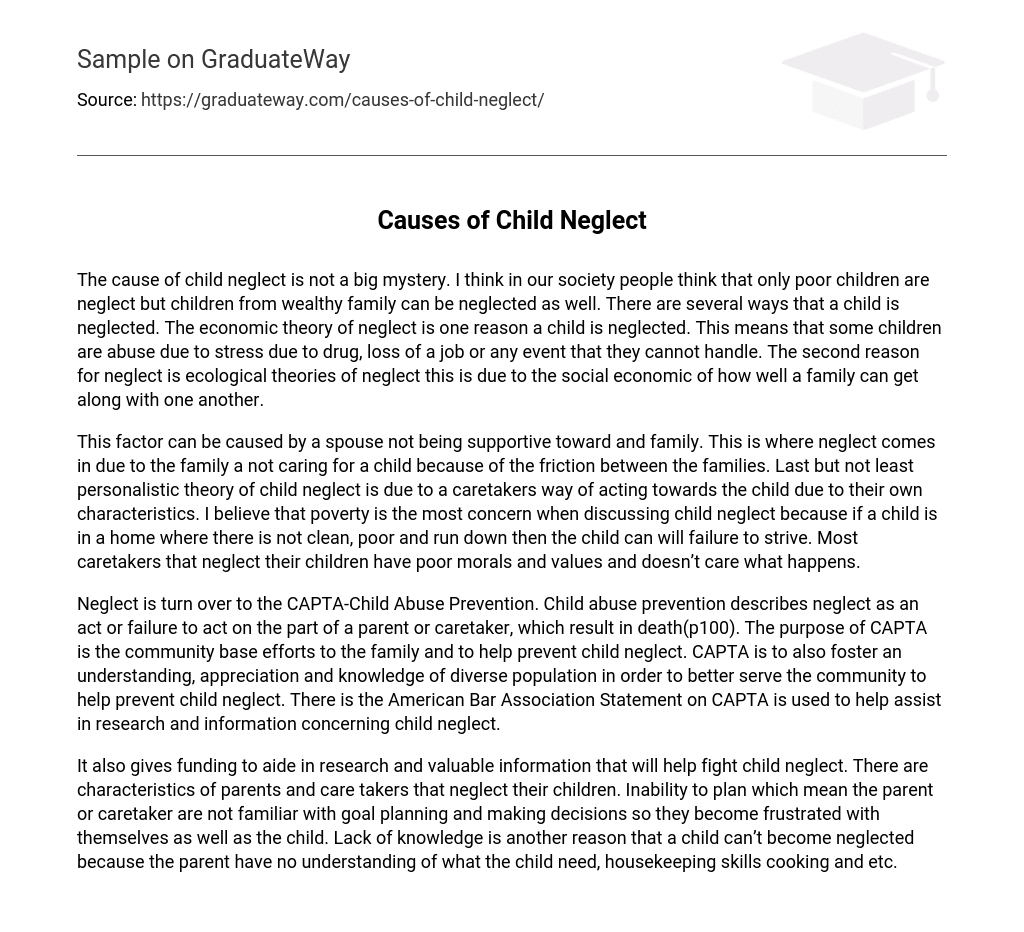Child neglect is a widely recognized issue that impacts children across different socioeconomic backgrounds. While it is commonly assumed that only children from poor families suffer from neglect, even those from wealthy households can be subjected to this form of mistreatment. Neglect manifests in various ways and numerous theories have been put forward to account for its roots. According to the economic theory, caregivers may mistreat children when they experience overwhelming stress brought about by factors like substance abuse, joblessness, or other difficult situations. Furthermore, neglect can result from ecological factors that influence a family’s overall functioning and socioeconomic standing.
Child neglect can occur for various reasons, including inadequate spousal or familial support, which leads to a lack of care for the child due to ongoing family conflicts. The personalistic theory of child neglect suggests that a caregiver’s treatment towards the child is influenced by their own characteristics. Poverty presents a significant problem as it can hinder a child’s ability to thrive and succeed. When a child resides in an unsanitary, impoverished, and deteriorated household, their likelihood of failure increases. Numerous caregivers who neglect their children often exhibit deficient morals and values and show indifference towards the consequences of their actions.
The CAPTA-Child Abuse Prevention is responsible for addressing neglect. Neglect is defined as a parent or caretaker’s failure to act, resulting in death (p100). CAPTA aims to support families and prevent child neglect through community-based efforts. Moreover, CAPTA promotes the understanding, appreciation, and knowledge of diverse populations to effectively serve the community in preventing child neglect. The American Bar Association Statement on CAPTA is a valuable resource for research and information regarding child neglect.
Funding is allocated to assist with research and dissemination of crucial information aimed at tackling child neglect. Neglectful parents and caregivers frequently encounter difficulties in planning and decision-making, resulting in frustration for themselves as well as the child. Furthermore, a deficiency in knowledge can contribute to neglect since parents may not fully comprehend their child’s requirements or possess fundamental skills such as maintaining a clean home and cooking.





